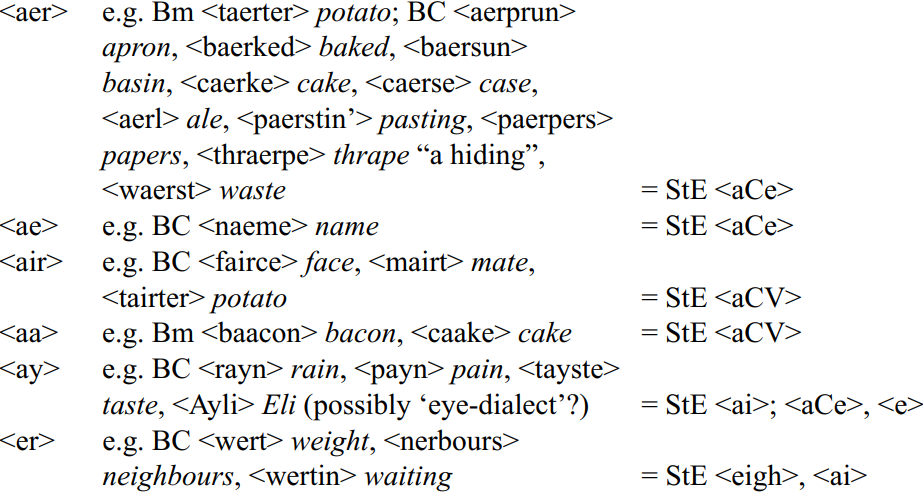

Grammar


Tenses


Present

Present Simple

Present Continuous

Present Perfect

Present Perfect Continuous


Past

Past Continuous

Past Perfect

Past Perfect Continuous

Past Simple


Future

Future Simple

Future Continuous

Future Perfect

Future Perfect Continuous

Passive and Active


Parts Of Speech


Nouns

Countable and uncountable nouns

Verbal nouns

Singular and Plural nouns

Proper nouns

Nouns gender

Nouns definition

Concrete nouns

Abstract nouns

Common nouns

Collective nouns

Definition Of Nouns


Verbs

Stative and dynamic verbs

Finite and nonfinite verbs

To be verbs

Transitive and intransitive verbs

Auxiliary verbs

Modal verbs

Regular and irregular verbs

Action verbs


Adverbs

Relative adverbs

Interrogative adverbs

Adverbs of time

Adverbs of place

Adverbs of reason

Adverbs of quantity

Adverbs of manner

Adverbs of frequency

Adverbs of affirmation


Adjectives

Quantitative adjective

Proper adjective

Possessive adjective

Numeral adjective

Interrogative adjective

Distributive adjective

Descriptive adjective

Demonstrative adjective


Pronouns

Subject pronoun

Relative pronoun

Reflexive pronoun

Reciprocal pronoun

Possessive pronoun

Personal pronoun

Interrogative pronoun

Indefinite pronoun

Emphatic pronoun

Distributive pronoun

Demonstrative pronoun


Pre Position


Preposition by function

Time preposition

Reason preposition

Possession preposition

Place preposition

Phrases preposition

Origin preposition

Measure preposition

Direction preposition

Contrast preposition

Agent preposition


Preposition by construction

Simple preposition

Phrase preposition

Double preposition

Compound preposition


Conjunctions

Subordinating conjunction

Correlative conjunction

Coordinating conjunction

Conjunctive adverbs


Interjections

Express calling interjection


Grammar Rules

Preference

Requests and offers

wishes

Be used to

Some and any

Could have done

Describing people

Giving advices

Possession

Comparative and superlative

Giving Reason

Making Suggestions

Apologizing

Forming questions

Since and for

Directions

Obligation

Adverbials

invitation

Articles

Imaginary condition

Zero conditional

First conditional

Second conditional

Third conditional

Reported speech


Linguistics

Phonetics

Phonology


Semantics


Pragmatics

Linguistics fields

Syntax

Morphology

Semantics

pragmatics

History

Writing

Grammar

Phonetics and Phonology


Reading Comprehension

Elementary

Intermediate

Advanced


Teaching Methods

Teaching Strategies
Vowels FACE
المؤلف:
Urszula Clark
المصدر:
A Handbook Of Varieties Of English Phonology
الجزء والصفحة:
148-7
2024-02-29
1048
Vowels FACE
This is one of the few variables for which there appears to be a consistent difference between the Black Country and Birmingham conurbations.
As Wells (1982: 210–211) explains, the West Midlands variety has undergone long mid diphthonging, producing diphthongs rather than pure vowels in FACE. It appears from the BCDP data that Birmingham typically has  , much as in South-East England, while the Black Country typically has
, much as in South-East England, while the Black Country typically has  . In more formal styles,
. In more formal styles,  occurs in both areas.
occurs in both areas.
According to Wells (1982: 357), the long mid mergers were generally carried through in the Midlands, so that distinctions are no longer made between pairs like mane and main.
Mathisen (1999: 109) maintains that Sandwell speakers typically have [æi], compared to Bm  ; elderly speakers also have [εi], or [ε] as in TAKE. Hughes and Trudgill (1996: 55) have WM
; elderly speakers also have [εi], or [ε] as in TAKE. Hughes and Trudgill (1996: 55) have WM  . Painter (1963: 30) similarly has BC
. Painter (1963: 30) similarly has BC  , realized as
, realized as  , alternating with /e/, realized as
, alternating with /e/, realized as  , the latter presumably in the TAKE subset. Chinn and Thorne (2001: 22) maintain that Bm speakers’ realization here is typically “very open, similar to (…) Cockney speakers” (
, the latter presumably in the TAKE subset. Chinn and Thorne (2001: 22) maintain that Bm speakers’ realization here is typically “very open, similar to (…) Cockney speakers” (  ), e.g. in break, way, waist, weight. However, he notes [ε] in various verb forms of the TAKE subset, e.g. make, made, take.
), e.g. in break, way, waist, weight. However, he notes [ε] in various verb forms of the TAKE subset, e.g. make, made, take.
There is evidence for various non-short realizations (quality unclear – possibly  ):
):

There is evidence (written, also audio) for various short-vowel realizations, apparently:
(1) [ε] in verb forms in Bm <en’t/ennit> ain’t; Bm/ BC <tek/tekkin’/tekin> take/taking; Bm/ BC <mek/mekin/med> make/making/made (the TAKE subset).
(2) [I] in Bm <in’t/inarf> ain’t/ain’t half (isn’t/isn’t half), <agin>again(st), <allis> (also Bm/ BC <allus> ) always. Note especially [I] or [i:] in Bm <causey> causeway (as in other dialects, e.g. North-eastern place-name Causey Arch).
(3) [a] in Bm/ BC <babby> baby.
Heath (1980: 87) has  for Cannock.
for Cannock.